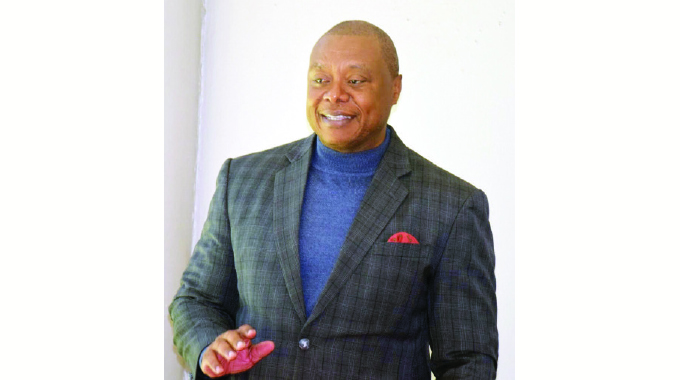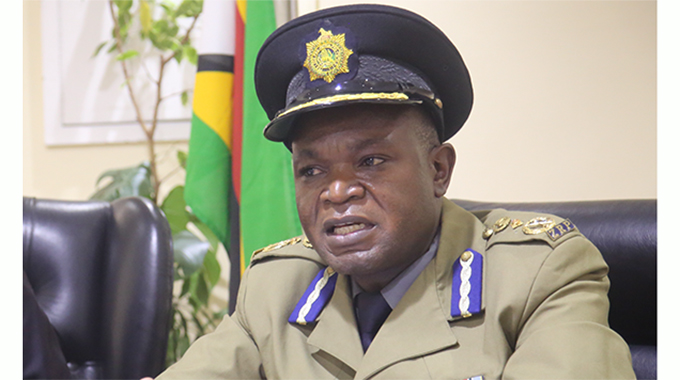EDITORIAL COMMENT : ZACC building muscles, flexing them

The battle against corruption needs to be fought on three fronts and this the Zimbabwe Anti-Corruption Commission is now doing: building solid cases against the corrupt after proper investigations, going after the dirty money that the corrupt stole, and then preventing corruption happening in the first place.
The mess we have inherited has to be cleaned up and here ZACC are becoming far more efficient and hard-hitting as chairperson Justice Loice Matanda-Moyo made clear over the weekend.
One problem in the past was that people were arrested, went to court but either managed to squirm out of a trial commonly because the prosecutors did not have enough evidence to start a trial, or in some cases managed to be acquitted. We are still seeing charges withdrawn in some cases five years after they were laid, often because people are arrested before the facts were all in.
While there have been the odd convictions over the past few years and several people sent to jail, this particular problem is now being addressed.
Already a former CEO of Zinara has been put inside for three years and a magistrate for four years. So far this year 68 dockets have been sent to the National Prosecuting Authority and, very importantly, the link between ZACC investigators and the authority have been enhanced.
This should be working in both directions. Prosecutors make the final decision over whether they can go to trial on the evidence they have and at least make the basic case that then needs to be defended.
When prosecutors and investigators are in contact investigators learn from prosecutors just what sort of evidence is required, and prosecutors can tell investigators what more they need to have a good chance of a conviction.
Everyone in Zimbabwe is entitled to a fair trial and criminal convictions need proof beyond reasonable doubt. This can be tricky if the dishonest have destroyed evidence, and in any case is often difficult in corruption cases since the plotting and deal making is often not done before witnesses and with documentation.
Then there are the points of law that need to be addressed, and will be argued by lawyers interminably, as to whether the facts show a crime was committee or whether it was just a bad decision.
We are talking about perks that some top people in a range of public entities award themselves; we are talking about decisions made in local authority committees. Here, where facts are not really in dispute and are well-documented, we probably need to push the long trial process in some key cases to build the legal precedents in the trial courts and the appeal courts. Such cases may take time to reach ultimate finality, with several appeals on points on law and then appeals on appeals. But the gain will be some very precise decisions fleshing out the laws Parliament has passed, and even if some manage to escape through a loophole that loophole can be closed to stop the next person trying to travel through.
The second area where ZACC is making a major effort is recovering the illicit gains, and Justice Loice Matanda-Moyo is talking about US$1 billion this year.
These recovery law suits are civil suits, not criminal actions. The main difference is that in a civil action you only need to show on the balance of probabilities that assets were acquired dishonestly, not prove dishonest behaviour beyond reasonable doubt.
You can get in these sort of dual approaches that interesting position that a person is acquitted of criminal charges of corruption, or perhaps not even tried since there is no overwhelming evidence, but can still lose the proceeds of their corrupt behaviour since it is probable that these proceeds were not acquired in a lawful way.
Once the assets have been tracked down, and once ZACC have shown that on what is known about the holder’s income and honest dealings there is no way these assets could have been acquired honestly, the holder then has to explain where they got the money.
Sometimes that could lead to an extra set of law suits, such as non-payment of taxes in the past, so either way the holder loses the asset.
These actions to reclaim assets and cash undo much of the damage that corruption causes, the diversion of public funds into private pockets so harming the public.
When the money or assets are returned to the public they can be used to benefit the public as originally intended and there is a lot of public work that could use a slice of that US$1 billion to accelerate development.
Secondly this can act as a major deterrent. Someone may be able to escape a criminal conviction through lack of witnesses and lack of documentation, but unless they bury their loot they then have to explain where they got that loot and so will lose it. To trash your good name and gain no advantage really defeats the purpose of corruption.
The third front in the ZACC battle is to stop corruption in the first place. Here the private sector shows a lead with every large company having both internal and external auditors who insist that proper best-practice systems are in place to ensure that whatever is done leaves a clear and unambiguous paper trail, and then ensuring that these systems are implemented and used.
This does not eliminate bad management, but it does close a lot of doors against dishonest management.
The public sector has the essentials, the Auditor-General and her office, although she does note that too high a proportion of her staff use the office as a training ground and when they are experienced cut-throat auditors move over to do the same thing in the private sector.
But her annual reports are revealing. She frequently has to report not that money has disappeared corruptly but that it is not properly accounted for, and in some cases that those responsible, such as the Harare city treasurer, do not even now what has happened to it.
Every report lays down detailed recommendations over practices that need to be changed, software that needs to be updated, and lists the doors and windows that the corrupt could use are to be properly locked.
And equally frequently she has to report that this is not the first time she has noted this, and that nothing happened. ZACC now wants to back her and make sure something does happen.
In the private sector shareholders, as the owners want and expect audit recommendations implemented by the present management or they want a new management to implement them. That seems to be an ideal solution in the public sector as well. We are already seeing convictions based on someone not following the correct procedure and so abusing their public office. There is no suggestion in the charge sheets, for example, that there were backhanders from tender winners where grossly overpriced goods and services were offered, but rather that those tenders should simply have been rejected and if necessary a new tender floated.
ZACC have picked up the need for this shareholder role in the public sector. The shareholders are us, the citizens of Zimbabwe, so ZACC is running awareness programmes and the like to show the citizens that they are not powerless, and that ignoring something going wrong is not an option.
Citizens are entitled to the promised services and have a right to insist that all officials, not just some or even just a large majority deliver, as is now largely the case. They have the right to insist all deliver, which is why we see ZACC now increasingly seen as a solution where a complaint can be taken seriously.









Comments